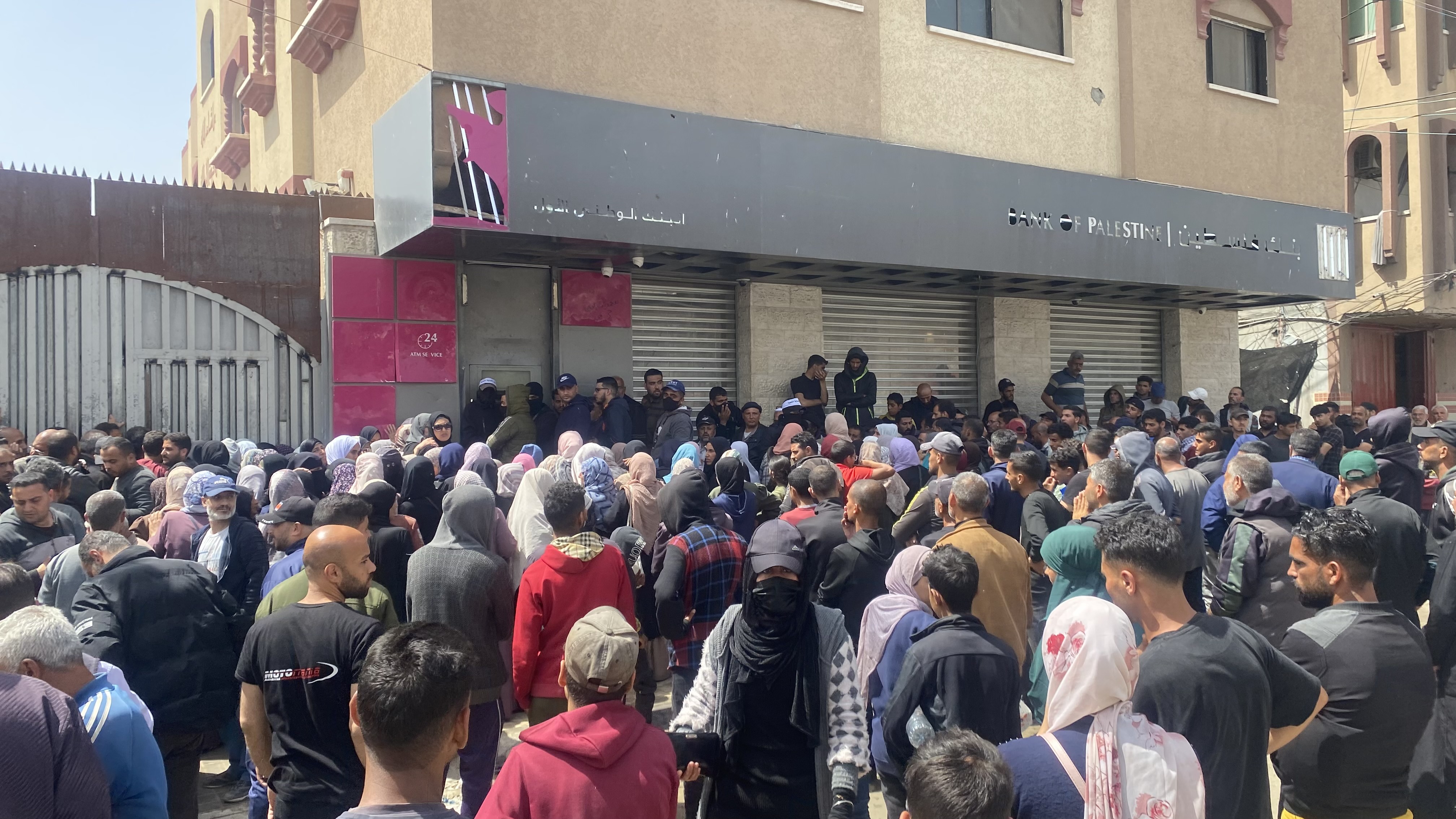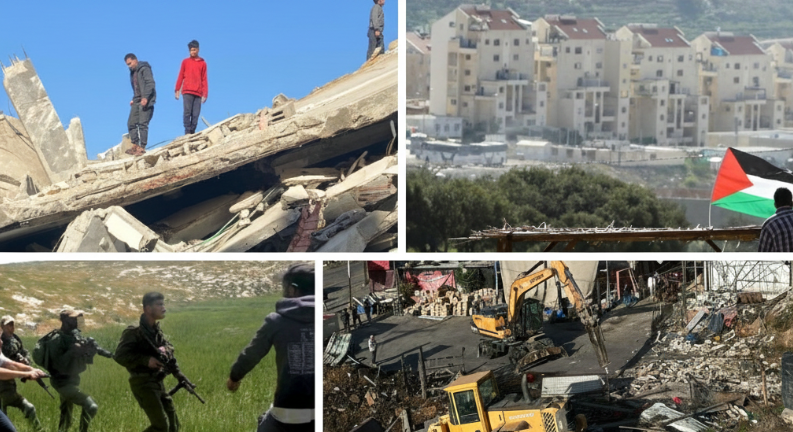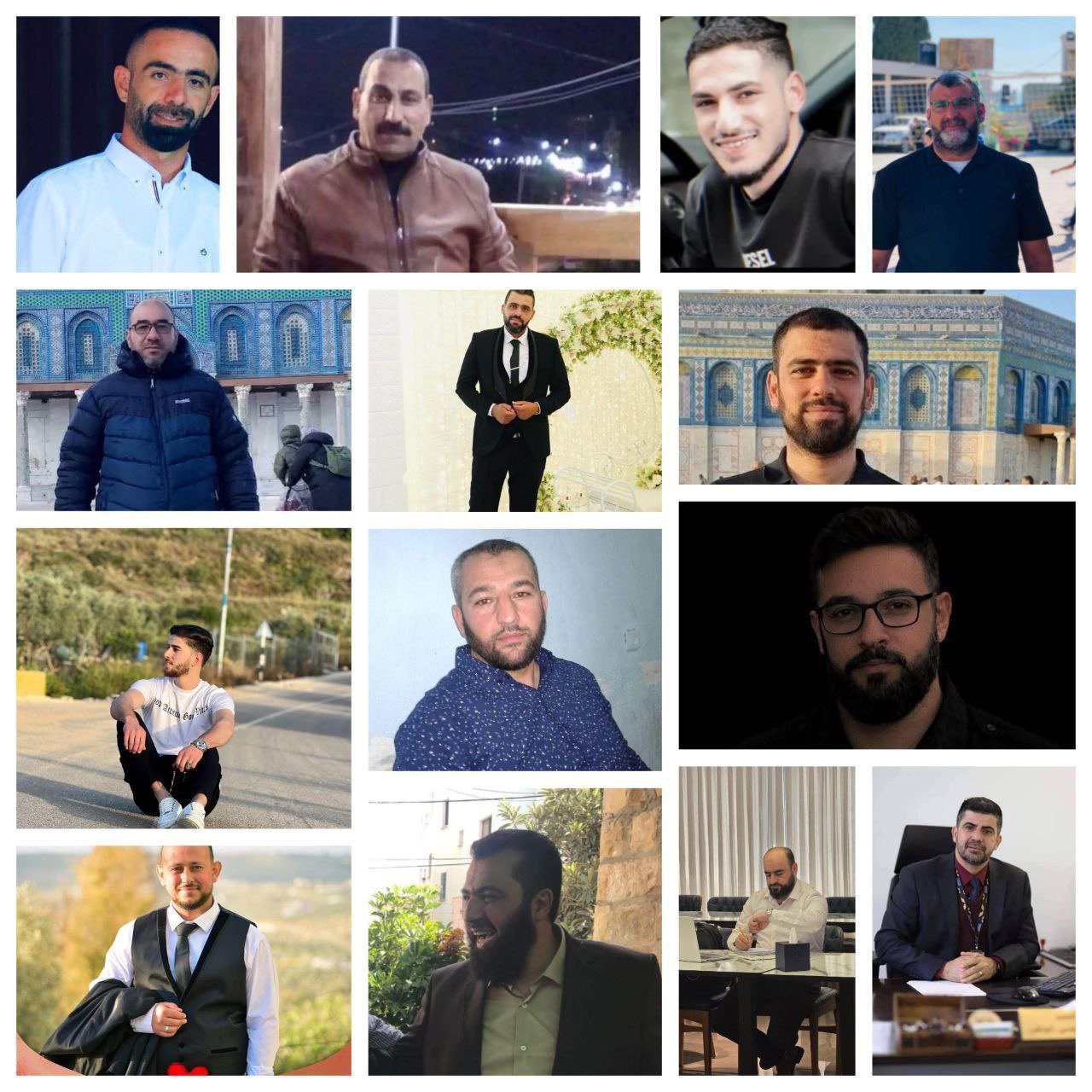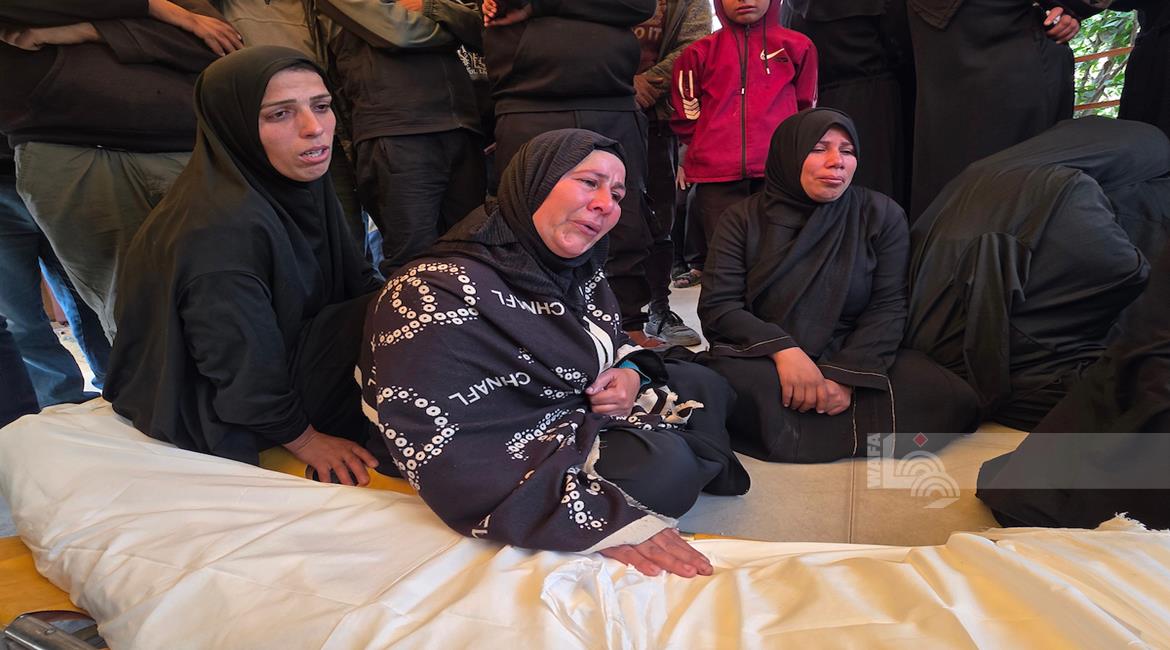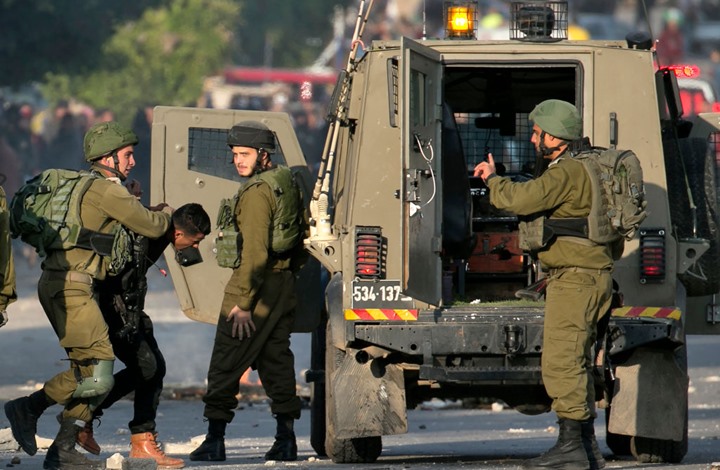By Sami Abu Salem
GAZA, Thursday, April 4, 2024 (WAFA) – In a bustling street in Rafah, in the farthest south of the Gaza Strip, Sa'eed Atallah carries two blankets, a teapot, and a pillow as he heads to camp outside a local branch of a bank in the Tal al-Sultan neighborhood to secure a spot to withdraw his monthly salary.
Atallah, a 32-year-old civil servant, explains that he has been queuing for four consecutive days now, trying to withdraw his monthly salary deposited by the government, but the overwhelming crowds have made it impossible.
The Gaza Strip is facing a financial liquidity crisis due to the Israeli aggression, now in its 180th day, the blockade on the entry and transfer of funds, and the destruction of the majority of banks and ATMs.
The Palestinian Monetary Authority has announced in a statement that it was unable to open bank branches for withdrawal and deposit operations in all governorates of the Gaza Strip due to the ongoing airstrikes, field conditions, power outages, and the security situation.
"The liquidity crisis has worsened with most ATMs out of service," the statement read.
Atallah recounts his sixth unsuccessful attempt to withdraw his February salary.
Employees can't access their salaries due to the continuous 24/7 queues, suffocating crowds, and ensuing chaos, often resulting in altercations and injuries.
Mohammed Abdeljawad, a Palestinian citizen displaced from Gaza City to Rafah, couldn't also withdraw his salaries for January and February due to the crowding and chaos caused by the cash shortage.
Unable to access his salary, Abdeljawad used to rely on transferring funds from his balance to another person's via a mobile app two months ago, but now he can't repeat the process as the recipient lacks liquidity, leading to increased commission fees.
"The first time, I paid the man a 5% commission, now they demand 15%, and that's a significant amount," Abdeljawad laments.
Some citizens resort to another method by giving their bank card to a merchant, who deducts an agreed-upon amount and hands them cash after deducting a commission.
Abdeljawad points out that this method is no longer effective due to the scarcity of cash in Gaza. "I don't know how I will live or cover my expenses. I have my salary in the bank, and I can't receive it, nor can I get any cash," he said.
In Rafah's market, Mahmoud Juma'a sets up a table with canned goods and food items for sale. Mahmoud, 45, works as a government employee but hasn't received his salary due to the cash shortage.
He sells some of the food aid he receives at the shelter to buy cleaning supplies because of the lack of liquidity. "We are reverting to the barter era," says Juma'a.
In the long queue, Wael Saadat, 23, yawns as Farid Al Jamal, a retired government employee, takes his place to withdraw cash from the ATM. Saadat has been holding the spot for Farid for two days in exchange for 100 shekels.
He reveals that he reserves the spot after breaking his Ramadan fast at the sound of the Maghrib call to prayer, then returns after having Suhoor and waits until the bank opens around 9 a.m. "Sometimes I fail, and there is no cash available. Sometimes thugs take over the ATM and don't allow anyone to withdraw money without being fined 50 shekels," Saadat said.
Citizens turn to currency exchange shops to collect their salaries using their bank cards for a commission. Some merchants exploit citizens' needs, raising interest rates, but this process is nearly halted now due to the lack of liquidity in the war-ridden Strip.
A source at a bank branch in Gaza points out that the funds leaving Gaza aren't being replaced, and the route is cut off from the main branches in Ramallah, Jordan, or elsewhere due to the war on Gaza, making it difficult to transfer cash.
He notes that ATMs are replenished with funds collected by some merchants and money changers who collect cash from sellers or employees receiving remittances or salaries via these intermediaries for a commission.
Mohammed Abu Hameda, an economic analyst, states that the cash shortage harms the national economy, paralyzing normal trade activities and concentrating cash in the hands of a specific class only.
"No money is in the hands of citizens, leading to reduced demand, meaning increased supply without liquidity, and citizens may return to the barter era," says Abu Hameda.
Simultaneously, Jumana Al Atrash, who received a financial remittance from her sister in a European country, couldn't withdraw it from the bank. She turned to a currency exchange shop and had to accept a 15% commission.
"I know the commission is huge, but I have no choice but to succumb to this monopoly because I'm a displaced person in need of food," said Samia, a displaced woman from Gaza City.
M.N




